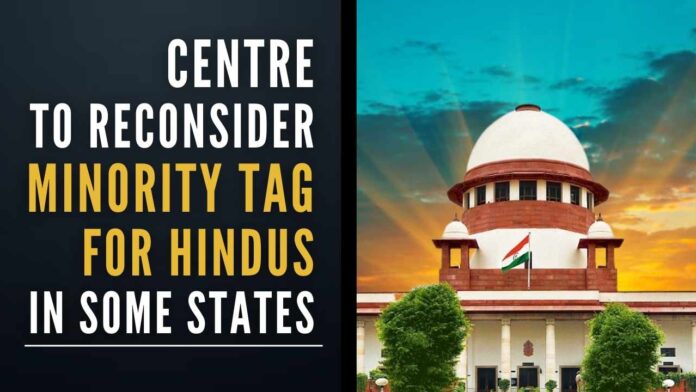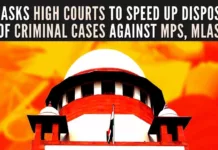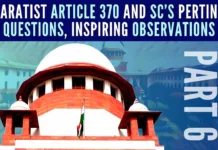
Centre submits a fresh affidavit in supersession of its previous affidavit on minority tag for Hindus
Under the National Commission for Minorities (NCM) Act, the Central government has notified only six communities, namely Christians, Sikhs, Muslims, Buddhists, Parsis, and Jains, as minorities at the national level
The Union government will initiate a “wide consultation” with states and other stakeholders to examine a plea as to whether Hindus can be granted minority status in states where their numbers are less than those of other communities, an affidavit filed by the Centre in the Supreme Court said on Monday, indicating a withdrawal of its previous stand on the issue.
The government said it is submitting a fresh affidavit in supersession of its previous affidavit filed on March 27 when the Centre sought dismissal of a bunch of writ petitions and defended the 1992 National Commission for Minorities (NCM) Act and the 2004 National Commission for Minorities Educational Institutions (NCMEI) Act.
Under the NCM Act, the Central government has notified only six communities, namely Christians, Sikhs, Muslims, Buddhists, Parsis, and Jains, as minorities at the national level. The NCMEI Act entitles the six communities notified under the NCM Act to establish and administer educational institutions of their choice.
In its fresh affidavit in a PIL filed by advocate Ashwini Upadhyay, the Ministry of Minority Affairs superseded its March 28 affidavit and said the issue of declaring Hindus as a minority in certain states involves questions of “far-reaching ramifications throughout the country and, therefore, any stand has taken without detailed deliberations with the stakeholders may result in an unintended complication for the country.”
In the fresh affidavit, the Minority Affairs Ministry said, though “the power is vested with the Central government to notify minorities, the stand to be formulated by the Central government with regard to issues raised in this group of petitions will be finalized after having a wide consultation with the state governments and other stakeholders.”
“This will ensure that the Central government is able to place a considered view before the Supreme Court taking into consideration several sociological and other aspects obviating any unintended complications in future with regard to such a vital issue,” it said.
Upadhyay had said that even though followers of Hinduism, Judaism, and Bahaism are minorities in the states of J&K, Mizoram, Nagaland, Meghalaya, Arunachal Pradesh, Lakshadweep, Manipur, and Punjab, the majority communities in these states are treated as ‘minority’ due of their national population percentage, and they corner the benefits which should accrue to the real minorities.
“After the filing of the aforesaid affidavit, the Central government undertook a detailed inter-ministerial discussion based upon which it is decided to file the present affidavit in supersession of the earlier affidavit…the question involved in this writ petition has far-reaching ramifications throughout the country and, therefore, any stand taken without detailed deliberations with the stakeholders may result in an unintended complication for the country,” stated the affidavit, filed through the Union Ministry of Home Affairs.
The government has apparently made a retreat from the stand it previously took in the clutch of petitions, led by Delhi BJP leader Ashwini Kumar Upadhyay, in 2020. In its previous affidavit, the Centre termed Upadhyay’s plea “untenable and misconceived in law”. However, in the affidavit filed on Monday evening, the government said that the question involved in Upadhyay’s petition “has far-reaching ramifications throughout the country”.
In its earlier response to the PIL, the Centre had said that since the subject of identification of minority communities is in the Concurrent List of the Constitution, both the Centre and the states have the power to legislate to confer minority states on certain religious or linguistic communities which are in minority in the country or a particular state.
PGurus is now on Telegram. Click here to join our channel and stay updated with all the latest news and views
For all the latest updates, download PGurus App.
- TN: ED questions five district collectors in illegal sand mining case - April 25, 2024
- ECI issues show cause notice over alleged MCC violations by PM Modi, Rahul Gandhi; seeks response from BJP, Congress chief - April 25, 2024
- Will make India our global export hub: Hyundai Motor Group chief - April 25, 2024










